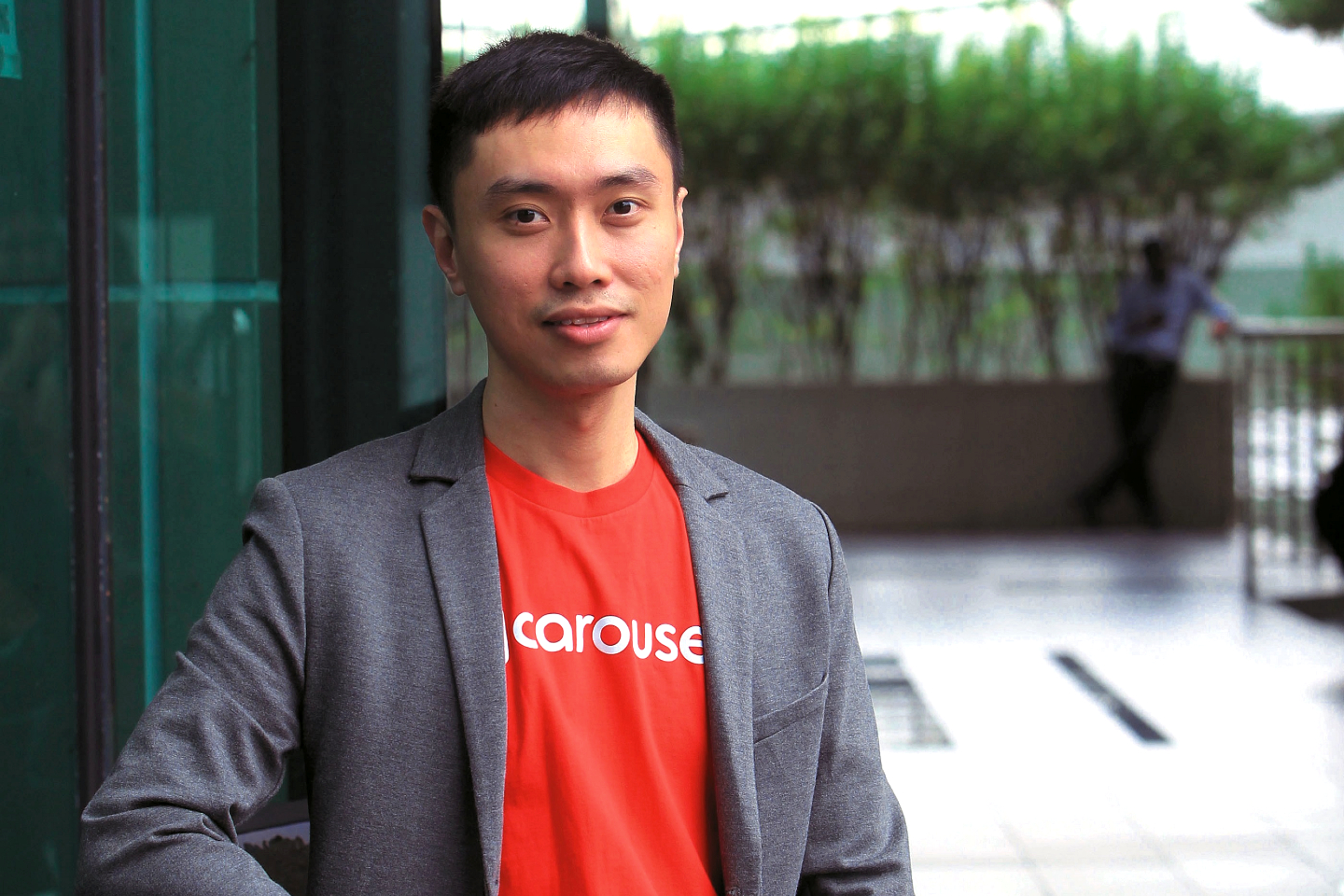
Ngoo hopes the idea of second-hand continues its upward trend and becomes the norm (Photo: Shahrin Yahya/The Edge)
You know your brand has made it when its name is used as a verb. The first time he heard someone say he would “Carousell it”, in reference to selling something on the mobile classifieds app, co-founder Lucas Ngoo experienced a thrill. The term was being bandied about in Singapore, where Carousell was founded by Ngoo and two other aspiring entrepreneurs in 2012.
Ngoo and Quek Siu Rui had found themselves living together during a student exchange programme in Silicon Valley organised by the National University of Singapore. In addition to attending classes at Stanford University, they were also attached to start-ups that flourished in the technological heart of San Francisco.
“It was 2011. Instagram and WhatsApp had just a few dozen employees each and things were happening at great speeds,” Ngoo recalls during a recent visit to Kuala Lumpur. “These were passionate people coming together to solve common problems with technology. That continued to inspire us when we returned to Singapore.”
carousell-co-founders-marcus-tan-lucas-ngoo-and-quek-siu-rui.png
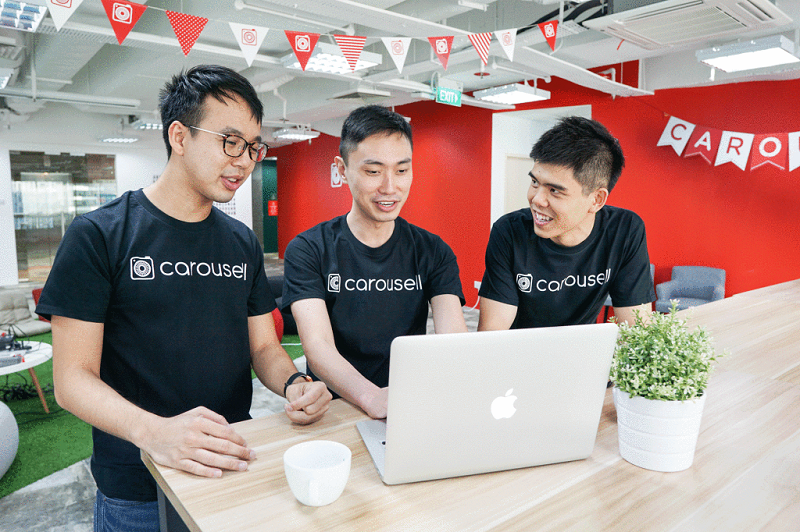
While attempting to declutter and struggling through the arduous process of selling unwanted items on online forums (photos had to be manually uploaded using desktops or laptops), the former housemates and Quek’s friend, Marcus Tan, banded together to create an app that would allow users to snap photos of, and upload items for sale using their mobile device. The trio joined a start-up weekend hackathon to design the premise of the app and their prototype won the competition. Months of refining followed and Carousell was officially launched in August 2012.
“We actually named the business after the old Kodak Carousel projector, but it also refers to the concept of a merry-go-round — second-hand items that are passed around and gain new life in new hands,” Ngoo elaborates. The spelling of the last syllable in the name indicates the nature of the consumer-to-consumer business, with the user process described as “snap-sell, chat-buy”.
“Winning the hackathon gave us the validation we needed that there was a demand for this,” says Ngoo.
Said validation continued to come hard and fast, from acquiring S$1 million in seed funding in November 2013 to raising US$6 million, US$35 million and US$85 million respectively in Series A, B and C funding between 2014 and 2018. In the meantime, Carousell celebrated hitting over 100 million listings globally and the launch of its car and property listing tools. Last year was pivotal for its growth, with the brand first raising US$56 million from technology investor mammoth Naspers and acquiring classifieds site OLX Philippines, and then signing a deal with Norwegian telecommunications company Telenor Group that secured its merger with classifieds asset 701Search. If that name does not ring a bell, its components might — 701Search owns and operates marketplaces such as Mudah in Malaysia, Cho Tot in Vietnam and OneKyat in Myanmar. Carousell, which started with three young men and had over 700 employees post-merger, was estimated to be worth US$850 million as the signatures dried on the dotted line.
carousell_x_telenor.png
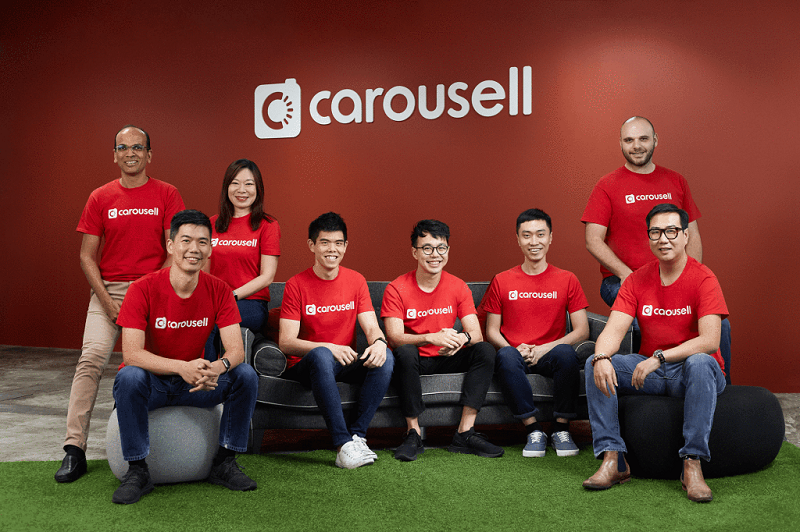
With great power comes great responsibility, goes the Peter Parker (Spiderman, for the uninitiated) principle. As the user count rose into the millions, the co-founders felt increasingly obliged to safeguard and improve the user experience.
“When it was just the three of us, I was coding and building the app,” says Ngoo, a computer engineering graduate. “Then, I helped grow the engineering, artificial intelligence and data science teams as we expanded. These days, I focus on reimagining the classifieds for the digital generation. We first reinvented it from a desktop experience to a mobile one, but what comes next?”
The biggest issue users face is trust, he continues. “When it comes to pre-owned items, users worry if they can trust the seller, if the products are authentic or will reach them. That led to the launch of Carousell Protection. Instead of transferring money directly to a seller, users can opt for this escrow solution where the company holds the money paid by buyers until they receive their items. It eliminates the risk of fraud.”
Early response from both buyers and sellers has been positive, with the former enjoying peace of mind and the latter assured of buyer commitment. The service incurs a minuscule fee — “It’s like buyer’s insurance” — but users evidently see the value of the layer of protection, particularly for big-ticket items.
On that topic, an authentication service for luxury goods is being experimented with as there is high demand and supply for pre-loved expensive items. This would potentially require the cooperation of the luxury brands themselves, who have it in their best interest to ensure that their products are accurately represented. Second-hand cars too are popular on sites such as Mudah — 701Search’s brands have been absorbed into Carousell but have retained their names — and there are plans for certified inspections to remove fears of purchasing a lemon.
“Our vision is that in three to five years, every single item on Carousell will have been vetted thoroughly and can be trusted,” says Ngoo. “Trust is a major element of brand building, not just where users are concerned, but employees too.”
As per the norm in start-ups, the average age of the company’s staff is in the twenty-something bracket, though the hiring of seasoned executives has raised that figure slightly. Star hires include chief financial officer Rakesh Malani, former Lazada technology vice-president Igor Volynskiy as chief technology officer, and former PropertyGuru chief business officer Lewis Ng as commercial head.
“We’re combining the experience of our executives with the enthusiastic creativity of our younger employees,” says Ngoo. “Part of the fun of being a co-founder is building the company culture. For many of our team members, this is their first job. Come to think of it, this is our first job. It has been fulfilling to see many people grow with the company. They joined us early in our founding and now hold managerial roles. I think young people especially appreciate that we are non-hierarchical and that the impact of their work is tangible, whether they’re a software engineer or part of the sales or marketing teams. A key driver of success is getting everyone on board with our mission to grow the classifieds marketplace.”
carousell.png
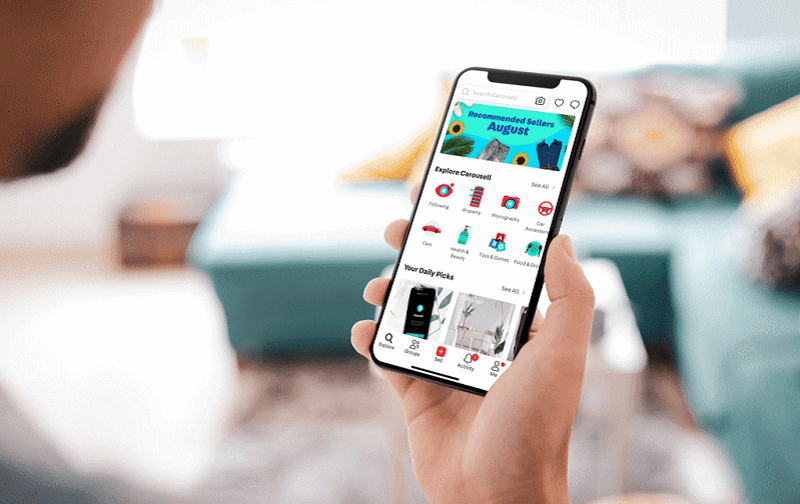
Progress in that department marches steadily on, with 2019 reports indicating that one in four Singaporeans use Carousell monthly. Singapore, Hong Kong and the Philippines are among the fastest-growing or biggest of its nine markets, which include Canada, Australia, New Zealand and Taiwan.
“Our mission is to make second-hand the first choice,” continues the co-founder. “It’s not too far-fetched to imagine. Someday, half of any wardrobe could comprise pre-loved clothes. This is an established concept in places like Europe, where thrift stores thrive, and Asia is slowly catching on to the idea. The take-up is more obvious when it comes to high-value items such as property and cars; people are more open to second-hand purchases in that regard, but I think accessible luxuries such as gadgets and branded goods are gaining in popularity.”
Some listings detail covetable high-quality and valuable items while a few border on the unbelievable.
“You do get rare finds like vintage books or collectibles, but some items raise eyebrows,” laughs Ngoo. “Someone once listed a tank — yeah, like the armoured vehicle. I think that might have been a prank as the listing disappeared within a week. There was also a boat in Singapore that was put up for sale, and it actually found a buyer. That means someone was actively looking for a boat to buy on Carousell!”
wayne_lim.jpg
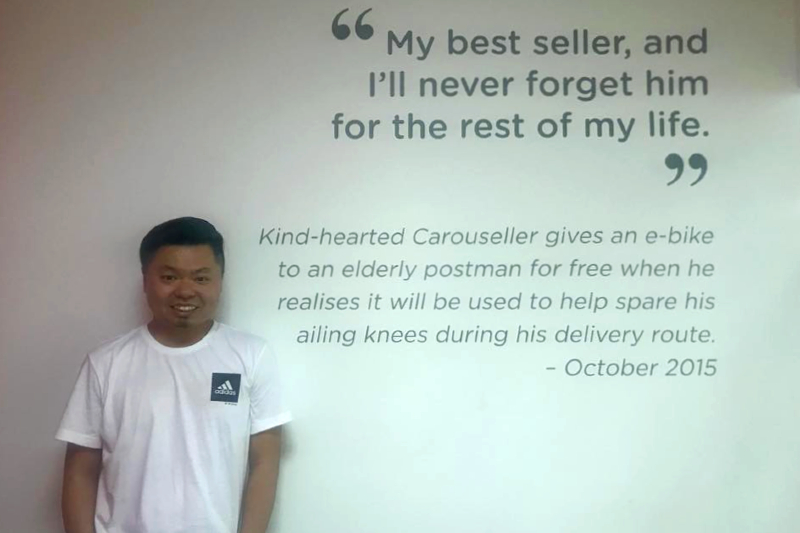
The most heart-warming exchange to have emerged from the classifieds app is one affectionately known as “Uncle Postman”. It was a story that went viral in Singapore for all the right reasons, starring an elderly mailman looking for an electric bicycle that could accommodate a mail carrier (this criterion decreased the odds of finding a suitable bike significantly) to replace the bicycle he was struggling to pedal, and a generous seller with just the right item. The latter, touched by the age and earnest motivation of the former, was reluctant to impose the original S$500 proposed for the e-bike and tried to give it away free of charge. However, the elderly gentleman was having none of that. They finally agreed on a modest S$50 for the vehicle and both parties were happy.
Ngoo smiles at the retelling of this tale. As unromantic as the classifieds might sound in theory, it is a platform that naturally lends itself to sentiment, when the right item reaches an appreciative owner.
“A 20-year-old might find his first car here, or someone might find a rare collectible she has been searching for for years,” he says. “I have to say, I look forward to Mondays, to coming in to work. That’s the fun of a start-up — there are always new challenges and opportunities, every day brings something different. You can’t help but be excited. The whole environment of innovation buzzes with energy. Hopefully, the idea of second-hand continues its upward trend and becomes the norm as we become more environmentally conscious and tech savvy.”
After all, why throw it when you can Carousell it?
This article first appeared on July 6, 2020 in The Edge Malaysia.


